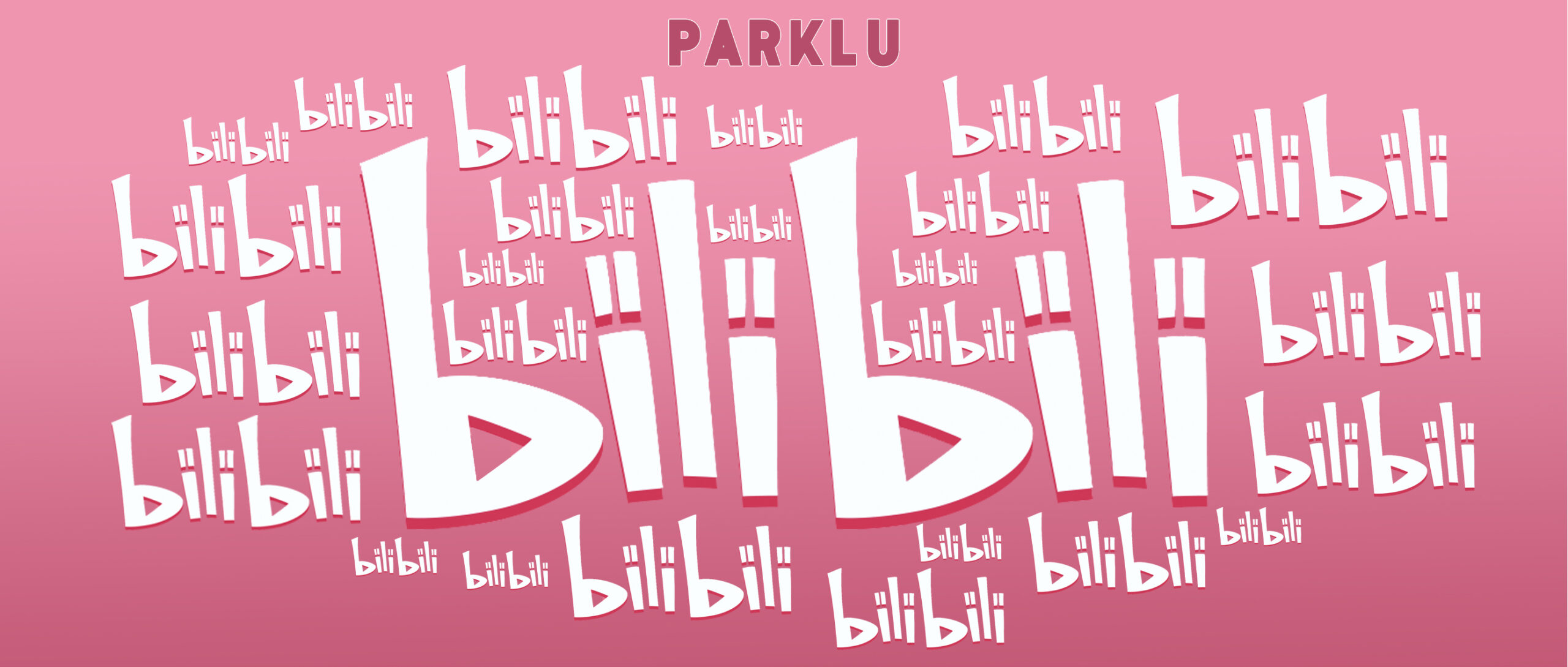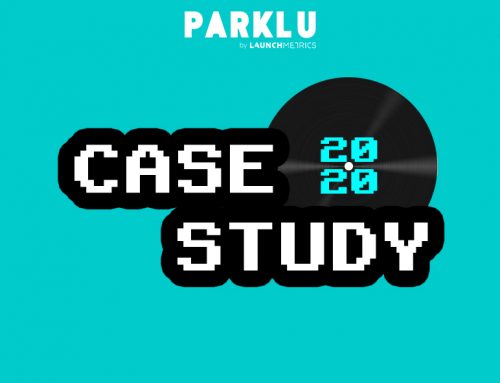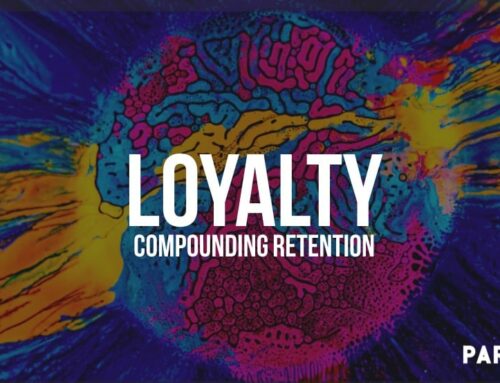Short videos and live-streaming are where so much of the excitement and investment in Chinese social marketing is right now, but content that invites co-creation is a specific niche within those categories. And it’s one that delivers impressive returns in terms of engagement, especially on Bilibili.
The culture of Bilibili: bullet comments
The most visible form of conversational content in Chinese social media at the moment is the “bullet comments” that are instantly recognizable to anyone who has seen them before. The format was pioneered by the Japanese ACG platform Niconico before Bilibili picked up the idea and made it a huge hit among young Chinese consumers.
Bullet chats feature user comments layered on top of a video, scrolling horizontally across the screen in real-time while the video plays. Although it looks messy at first glance, the experience has proved curiously compelling. In comparison with the traditional online video experience, where the viewer would switch between the video content itself and the comment thread directly below, the fast-paced bullet screen format inspires a sense of urgency and promotes rapid-fire exchanges between users.

It’s hard to see all comments or even watch the videos, but the comments are very conversational, and the Chinese young generation loves them. (Picture: Bilibili Blogger@陈吃饭_)
Brands across categories—from fashion to beauty—have had success stories with engaging in Bilibili. Viewers contributed over 200,000 bullet comments during a live-stream launch held by Shiseido in April. The bullet comments were part of a combined 1.34 million engagements generated by the live-stream, which featured a number of Shiseido’s brand ambassadors.
Before diving into conversational content, brands should familiarize themselves with the culture that predominates on Bilibili’s bullet chats. That means getting to know Gen Z and being literate in the slang, memes, and in-jokes that these young consumers revel in. As of the end of Q1 of 2020, an estimated 80 percent of Bilibili’s 172 million users were aged 18 to 35, but the platform is known specifically for capturing China’s Gen Zs.
Bilibili’s users are committed
It helps that Bilibili has taken steps to put up guardrails to prevent trashy or obnoxious content from degrading the impact of bullet chats. Users who want to post content, including contributing to bullet chats, must first submit to a test of their familiarity with both the platform’s code of conduct and the ACG (animation, comics, and games) culture that is Bilibili’s bread and butter.
At 100 questions long, the test is no joke. It’s designed so that potential trolls either lose interest or simply fail to make the cut. As a result, Bilibili’s bullet screen comments are a place where users can bond and have fun with like-minded people, rather than being dragged into the exhausting rituals of bad-faith bickering that define certain social platforms.

“Unlike social platforms with either free entry or paid membership fees, Bilibili requires a high level of commitment from its users,” writes Wenzhuo Wu for Jing Daily. “This type of user-platform interaction demands a certain level of dedication.”
Another benefit of that barrier to entry is that it creates exclusivity and an affinity between those who gain membership to the club. Bilibili’s users are famed for their “stickiness,” or their loyalty and enthusiasm for the content and content creators they engage with—and that’s partially a consequence of their shared experience of clearing that initial hurdle. And of course, the test’s content is a filter for shared interests and cultural fit. As a result, the content these users co-create on bullet chats tends to be imbued with a shared wit and energy that is addictively engaging.
Party officials have their own ideas about the kind of atmosphere that conversational content platforms should foster. In early 2019, the CCP’s official newspaper, People’s Daily, called for Bilibili and other platforms to moderate bullet chats in real-time. Of course, this is nothing new for the platforms, but given the immediacy of bullet screen chats they have to be on top of their game in terms of filtering out content that is abusive, offensive, or otherwise risks crossing lines.
To the degree that comments on YouTube and Youku videos are valuable at all, they are largely supplementary to the main content. Incorporating the rapid-fire immediacy of the bullet chat format directly into the content itself creates a tangible value-add. The bullet chat is a piece of content in its own right, and the video or live stream it appears with is rendered more meaningful or entertaining as a result. The dynamic, highly interactive nature of bullet chat content compounds the user “stickiness” factor.
Want to target GenZ; try Bilibili
“That means they can offer a more organic reach and positive conversion rates for brands,” Wu writes. “Therefore, the community-based site indicates a higher return on investment in influencer marketing than competitors like iQiyi and Youku.”
Fu Ze, a Bilibili premium user and Harvard researcher, told Variety that content on Bilibili is an ongoing “joint creative process” between the users and content uploaders. “You want to watch on Bilibili instead of other platforms because here, everyone is a creator—even if you’re not uploading a video. It’s very postmodern,” Fu said.
Things are looking up for Bilibili. The company announced 69 percent year-on-year growth for Q1 of 2020, for a total of RMB 2.3 billion. And the company’s ambitions are growing along with its revenues. The platform is expanding its content range far beyond its ACG origins to include all kinds of lifestyle topics, and that’s opening the door for brands to more actively tapping into the Bilibili’s lucrative Gen Z userbase.
Product Roadmap











Leave A Comment